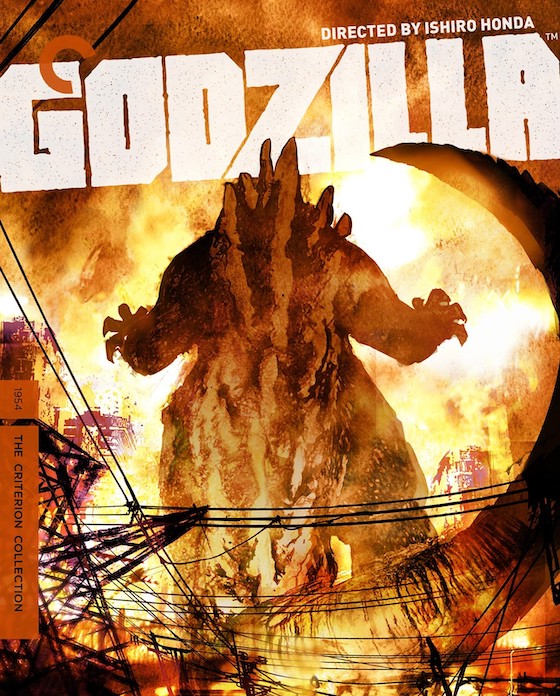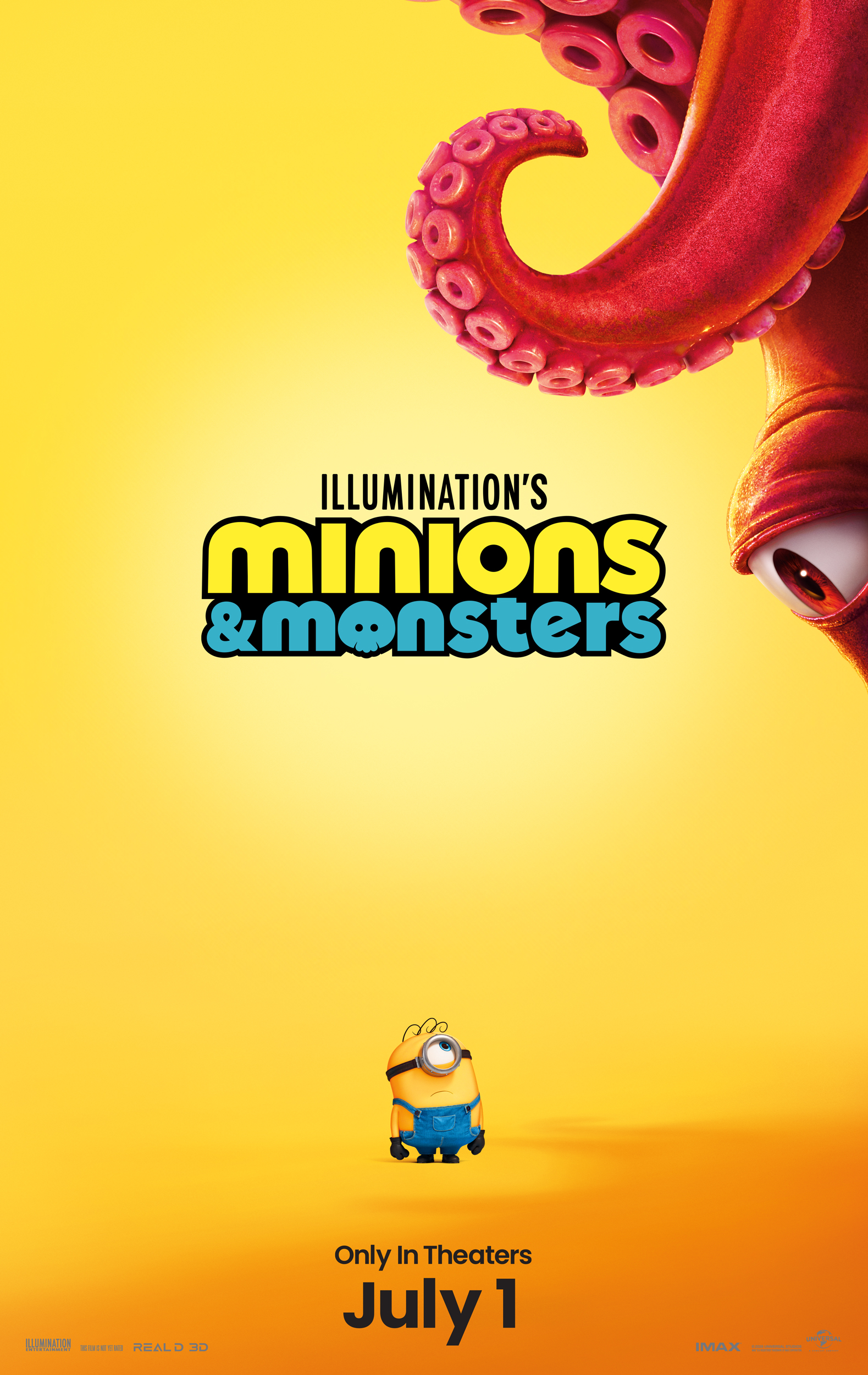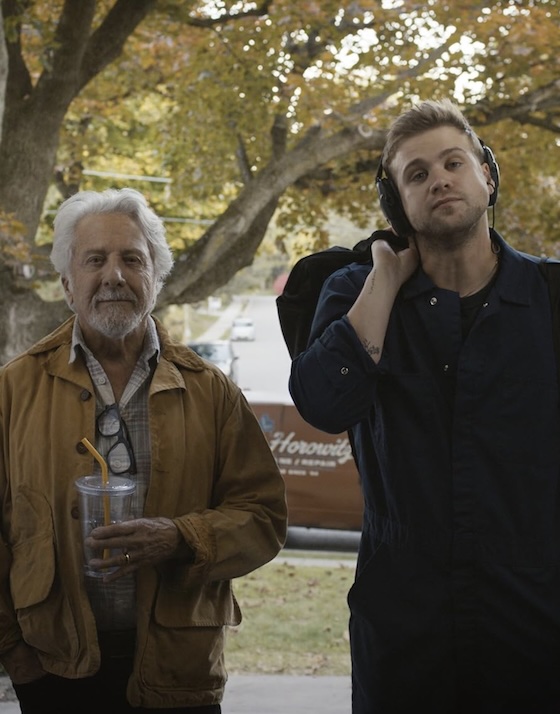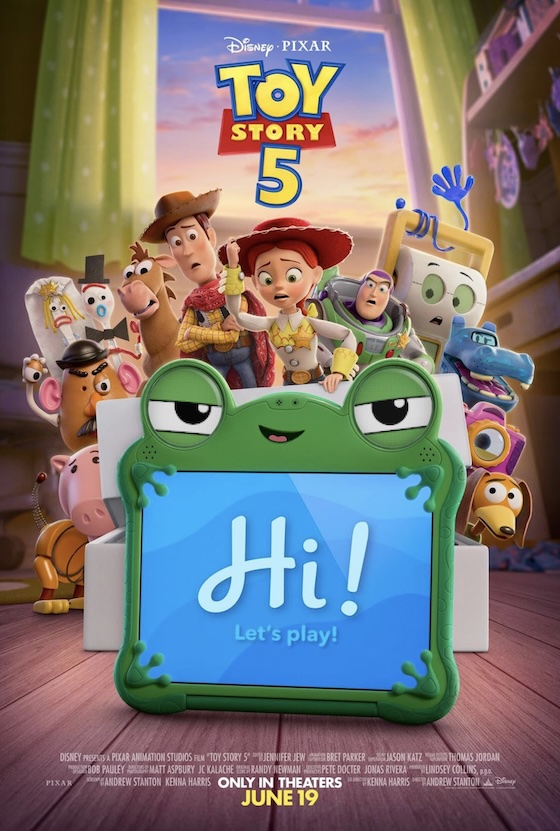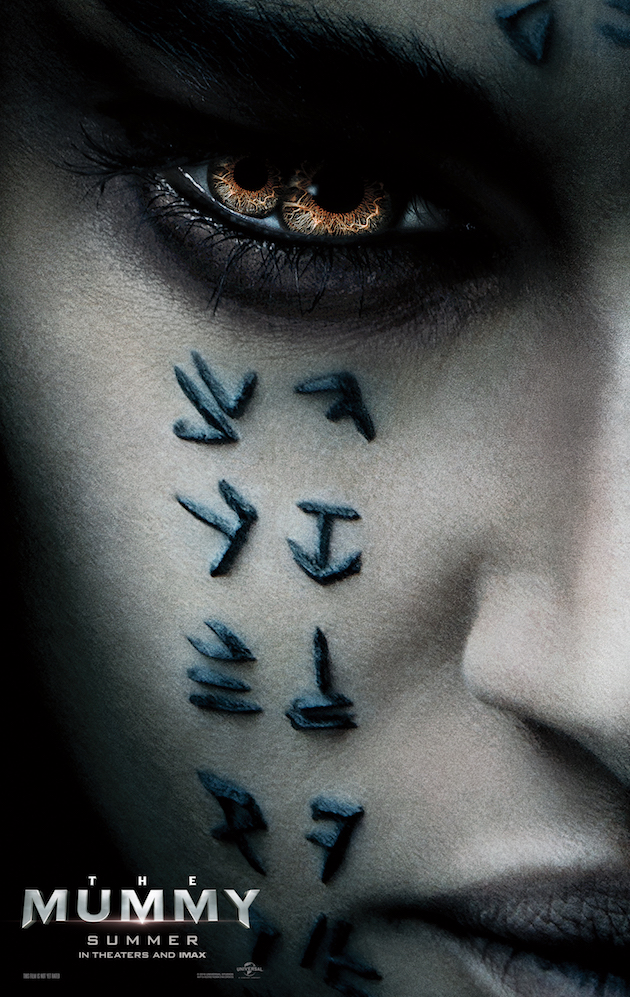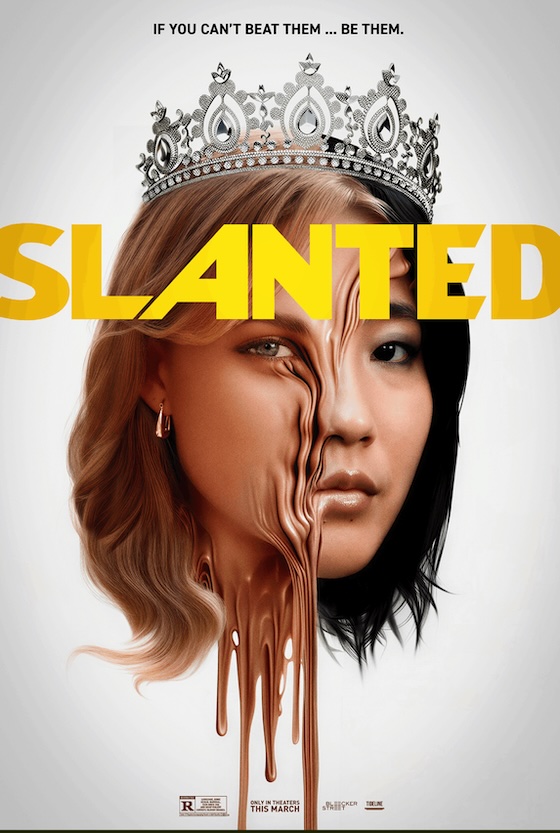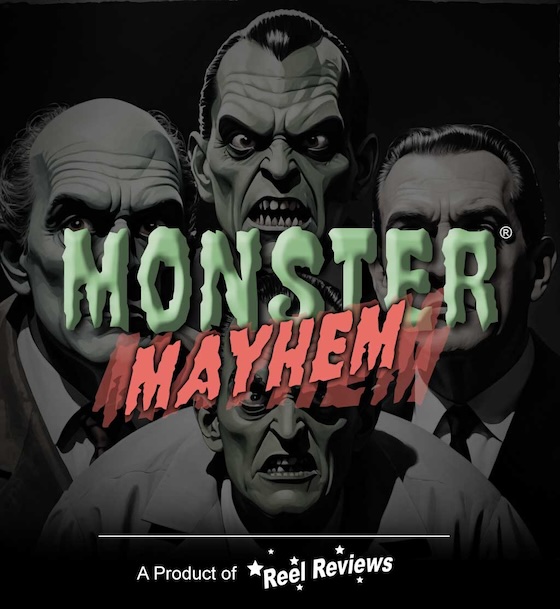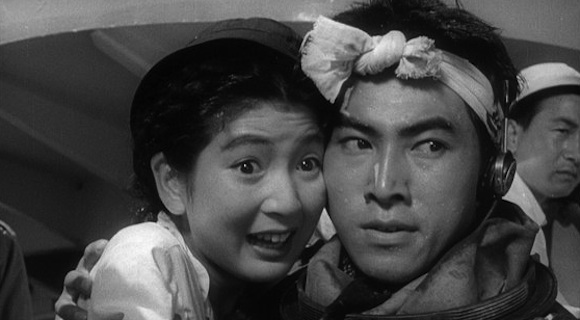
What do bathtub toy boats and plastic helicopters have in common with a dude in a monster suit? Hint: the action takes place in Japan. That’s right. Godzilla, the mother of all mega-monster movies, is returning to run rampage through your home entertainment system. Thanks to the remastering movie buffs over at Criterion, everyone’s favorite prehistoric lizard is getting a shiny new upgrade.
Directed by Ishir? Honda and produced by Tomoyuki Tanaka, Godzilla (a.k.a. Gojira) – the product of nuclear creation as the atomic bombings of Hiroshima and Nagasaki and the Daigo Fukury? Maru incident were still very much in the consciousness of the Japanese people – is a demanding little spectacle of a film that is as equally entertaining as it is imaginative as a cautionary tale. It also, in spite of its visible wires and obvious special effects, is a surprisingly solid melodrama.
This release is the original un-Americanized film (although the version with Raymond Burr is included in the set for its fans) and it’s a markedly truer tale without English speaking distractions. From beginning to end, Godzilla – as written by Honda and Takeo Murata – works as a monstrous metaphor for war and nuclear destruction and, as visualized by special effects director Eiji Tsuburaya, takes the shape of an enormous reptilian creature pissed at being awoken or risen from its prehistoric slumber.
The human part of the narrative focuses on Archeologist Kyohei Yamane (Takashi Shimura) and his daughter Emiko (Momoko K?chi), who very much wants to break off her engagement to Daisuke Serizawa (Akihiko Hirata), her father’s colleague. She would like instead to marry Hideto Ogata (Akira Takarada) and forget any sort of arranged marriage that her father might have for her.
While her heart lies with Ogata, she cannot find the strength to tell Serizawa the truth of her love…especially after he has shown her the weapon (his creation) that could be used to kill this Tokyo destroying monster and finish him off once and for all. Only Serizawa fears what it’s use might result in should it fall into the wrong hands.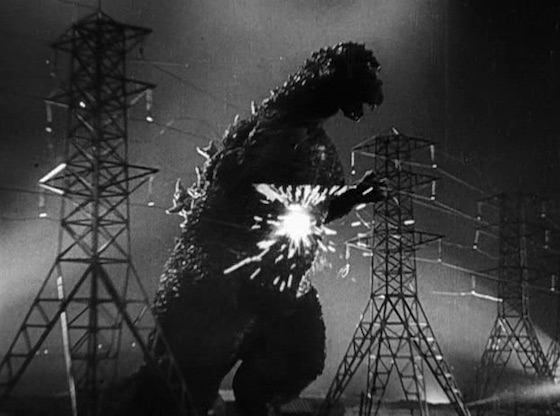
Sacrifices must be made. Hearts must be broken. Godzilla must be stopped. Mankind must not toy around in the nuclear age. This is the territory of Honda’s multiple series-inspiring classic; a film that might have more to do with the aftermath of war than the actual war on the monster itself. This isn’t camp. This isn’t goofy silliness either. These are young men and young women expressing their fears in the nuclear age. Survival; they lived through it. To them, Godzilla is a real thing. A truth more terrifying than a towering monster, mind you. And every frame is dripping with this sensitive message. If you can’t get past the rubber suit and see the actual meaning to this classic cautionary tale, well, you should probably sit closer to the screen.
Godzilla, now on sparkling blu-ray, will take your breath away. From the now-classic growling score from Akira Ifukube to the radioactive trilobite theatrics, Godzilla is a remarkable, if not misunderstood, gem of a foreign film.
![]()
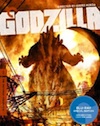 MPAA Rating: This title has not been rated by the MPAA.
MPAA Rating: This title has not been rated by the MPAA.
Director: Ishirô Honda
Writer: Ishirô Honda; Takeo Murata
Cast: Akira Takarada; Momoko Kôchi; Akihiko Hirata; Takashi Shimura
Genre: Horror | Sci-Fi | Thriller
Tagline: The legend begins
Memorable Movie Quote: "I understand. But if we don't use your device against Godzilla, what are we going to do?"
Distributor: Theatrical - Rialto Pictures: Blu-ray - Criterion Collection
Official Site: www.rialtopictures.com/godzilla.html
Theatrical Release Date: April 27, 1956
DVD/Blu-ray Release Date: January 24, 2012
Playback: Locked to Region A
Synopsis: A group of scientists accidently nuke a lizard and unleash the radioactive monster known as Godzilla. The oversized reptile wastes Tokyo and is on his way to destroying the rest of the world unless the Japanese government can stop him.

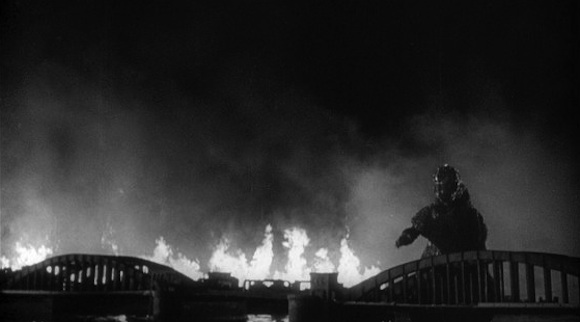
|
||||||||||||||||||
Blu-ray Details:
Available on Blu-ray - January 24, 2012
Screen Formats: 1.37:1
Subtitles: English
Audio: Japanese: LPCM Mono; English: LPCM Mono
Discs: 50GB Blu-ray Disc; Single disc (1 BD)
Criterion’s frame-by-frame digital restoration is presented in glorious black-and-white. Both the original film and the 1956 American reworking (directed by Terry Morse) have been painstakingly remastered for the best HD quality possible from the source material. Masao Tamai’s cinematography is brilliantly realized with great attention to the glory of Tokyo’s destruction and the crackling textures of cityscape to seascape. Obviously, most of the destruction occurs with cheap miniatures and the wires on the planes and the toy monster are, at times, more than visible. Detail is consistently impressive and the clarity of the picture is superior than the print used for Screen Media’s release last year. The source print is also nicer; being bold and dark in tones and spot-on in texture. There also appears to be less damage to the print which always makes for a better experience when watching. In fact, I noticed no scratches, hisses, or pops on the negative while watching. With two audio tracks: a rather flat Japanese LPCM 1.0, for Godzilla, and English LPCM 1.0, for Godzilla, King of the Monsters!, Criterion presents a package worth earning for the film content alone.
Supplements:
Commentary:
- While there is a strong analysis about the socio-political history of Godzilla and the Japanese culture, critic David Kalat’s commentary is a bit too emotional at times to be able to digest all in just one sitting. He picks and presents the story and structure of the film with intelligence and careful thought, but is a bit too close to the material and, while claiming to be impartial, does defend it from critical attacks. This stance should clue in the casual fan of Godzilla to the tongue-lashing it often gets when embraced as a “classic”. Kalat tracks the film’s production history, the use of its many camera effects, and the political themes running throughout. It’s obvious he is on a mission and why not? The film is seriously great and unusually misunderstood as a “monster” film only; Kalat sets the story straight.
Special Features:
Where to start? The set is deliciously loaded with a lot of special features to help smooth its candidacy into the accepted list of classic films. As I have already mentioned, the 80-minute American version, starring Raymond Burr, is included in a 1080p/24hz high-definition transfer. Man, is that ever a weird one. Burr plays American reporter Steve Martin and is in around when everything starts to happen and what follows is a movie full of different edits and, largely, the film is a throwaway when compared to the original. This also has a commentary from Kalat who doesn’t slam the film for being what it is, but goes into the distribution of the film and its foreign influence.
The rest of the supplementals start with featurettes ported over from the 2011 release. They feature interviews with cast and crew and, to be expected, the effects crew of Yoshio Irie and Eizo Kaimai. The most extended and celebrated is the 51-minute interview with composer Akira Ifukube. Originally recorded in 2000, this interview is a bit too lengthy to be only concerned with the score of Godzilla and might be a turn off for some. Pretty extensive, though. Japanese film critic Tadao Sato offers a unique take on the film and his interview is highlighted by reactions from Japanese audience members. The featurette dubbed ‘Photographic Effects’ goes over the special effects and tricks the visual effects team used to pull of the monster and his destruction.
One trailer for the American version of the film, an illustrated explanation of the event that inspired the film, and an essay written by J. Hoberman, (former) senior film critic for the Village Voice, rounds out the release.
This is a must own for any fan of classic cinema. Criterion, once again, does not skimp or disappoint its fans.
- ‘Godzilla, King of the Monsters!’ with optional commentary from David Kalat (80 min)
- Interview with Akira Takarada (13 min)
- Interview with Haruo Nakajima (10 min)
- Interview with Effects Technicians Yoshio Irie and Eizo Kaimai (31 min)
- Interview with Akira Ifukube (51 min)
- Photographic Effects (10 min)
- Interview with Film Critic Tadao Sato (15 min)
- The Unluckiest Dragon (10 min)
- Trailer
